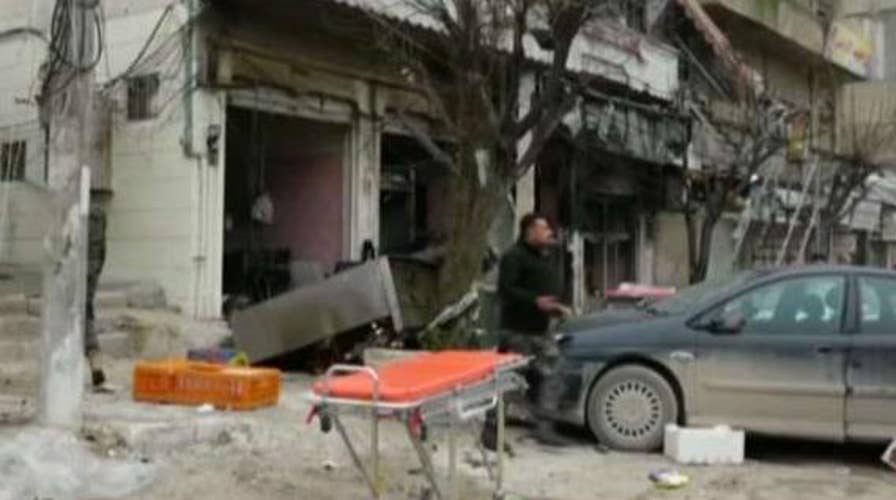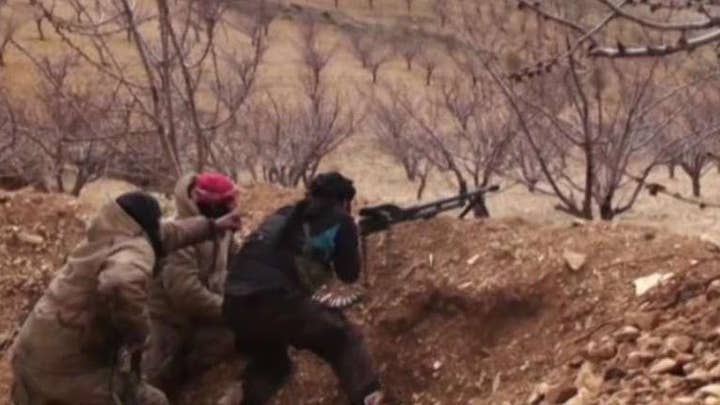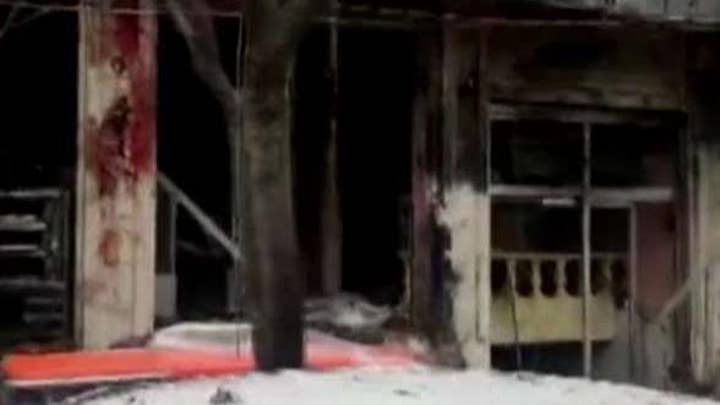An Iraqi scientist says he worked with ISIS, led its successful effort to obtain chemical weapons in 2014 and claims the terror group continues to seek for such weapons.
Suleiman al-Afari, an Iraqi geologist, started working for ISIS after the group seized Mosul in Iraq during the peak of the group’s activities in the region and began asking the remaining civil service workers to work for them.
TEXAS MAN WHO JOINED ISIS WANTED TO 'SEE WHAT THE GROUP WAS ABOUT'
But the man, who worked at Iraq’s Ministry of Industry and Minerals, was surprised after Islamic State militants, instead of letting him keep the same job, offered a new role: help the group make chemical weapons, the Washington Post reported.
“They didn’t force anyone,” Afari said in an interview. “I was afraid that I would lose my job. Government jobs are hard to get, and it was important to hang on to it.”
Afari went on to accept the proposed new role and worked for 15 months supervising the project to manufacture chemical weapons for the terror group.
He told the newspaper that he took the position because ISIS then became the government and everyone wanted to work to get paid. “Do I regret it? I don’t know if I’d use that word,” he said.
HACKERS SPREAD ISIS PROPAGANDA BY HIJACKING DORMANT TWITTER ACCOUNTS
The scientist is now facing the death penalty in Iraq as one of the few alive individuals associated with the group’s chemical weapons program.
He detailed the terror group’s successful effort to manufacture sulfur mustard, a chemical weapon used during the World War I, which was part of a broad attempt to equip the militants with chemical weapons that could be deployed to defend the territory and attack its enemies.
According to the Post, the scientist’s description of the plans was confirmed by U.S. and Kurdish officials who worked to destroy the insurgents’ weapon plants. U.S. and Iraqi officials also said that weapons created by ISIS were actually used in multiple attacks on soldiers and civilians in Iraq and Syria.
CLICK HERE TO GET THE FOX NEWS APP
While the chemical weapons program appears to have stalled since 2016 after the U.S. and its allies in the region pushed back against the ever-encroaching jihadists, the threat of such weapons production remains as some of the deadly materials were hidden or even moved outside the country.
The know-how provided by Afari and other scientists also still remains, allowing the surviving ISIS militants to continue the work.










































